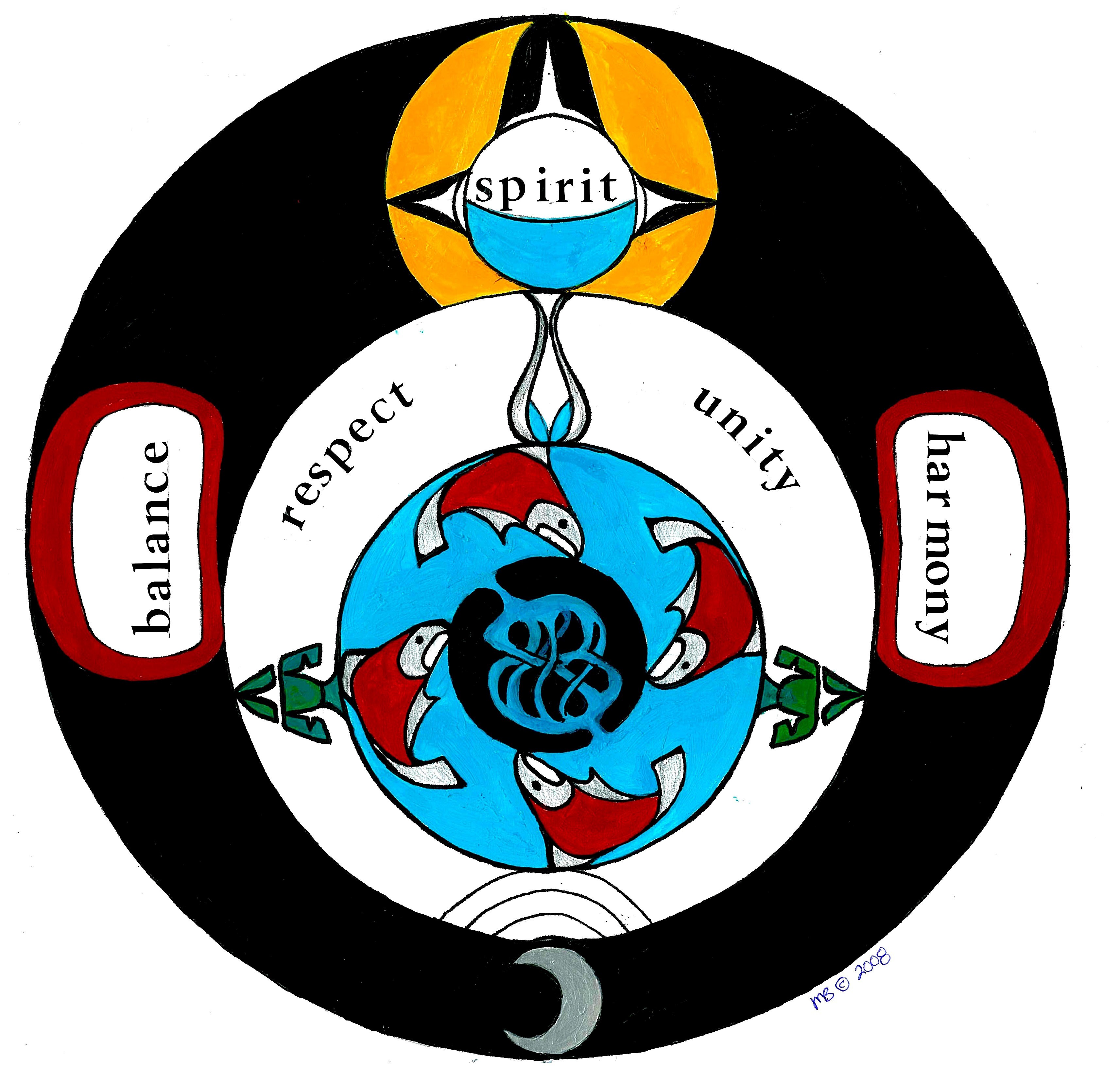FLASHBACK TO 2009: “The Role of Water Resources Management” (Proceedings of a symposium held on the island of Capri, Italy) – Michael Blackstock’s work on Blue Ecology recognized by the International Association of Hydrological Sciences
Note to Reader:
In his paper, published in 2009 by the International Association of Hydrological Sciences (IAHS), author Michael D. Blackstock proposes that we re-examine climate change from a Blue Ecology or “water first” angle: What is happening to the world’s water in the context of climate change?
Michael Blackstock proposes the acknowledgement of water’s central functional and spiritual roles in our world, and urges us to apply both indigenous and science-based understanding as we develop collaborative climate change mitigation strategies.
A definition of Blue Ecology, consistent with the UNESCO-IHP’s (2008) definition of water, is proposed, and also a Blue Ecology water cycle to be interwoven with Western science’s hydrological cycle. Finally, the author offers recommendations for hydrologists and water managers to implement Blue ecology.

Blue Ecology water cycle and principles, designed by Michael D. Blackstock as a companion to the conventional science-based Water Cycle.
Blue Ecology and climate change: interweaving cultural perspectives on water, an indigenous case study
 “In 2008, I was appointed to a UNESCO Expert Panel for a 4-year term. That led to my participation as a speaker at a conference organized that same year by the International Association of Hydrological Sciences,” recalls Michael Blackstock. He is an independent scholar, professional forester and chartered mediator of European and Gitxsan descent
“In 2008, I was appointed to a UNESCO Expert Panel for a 4-year term. That led to my participation as a speaker at a conference organized that same year by the International Association of Hydrological Sciences,” recalls Michael Blackstock. He is an independent scholar, professional forester and chartered mediator of European and Gitxsan descent
“Held in Capri, in October, the conference introduced Blue Ecology into mainstream science and resulted in fast-track inclusion of my paper in a peer-reviewed publication.”
“Looking back, this audience of scientists has been the most receptive to my concept for interweaving Western science and the First Nations spiritual perspective. They got it.”
Healthy Water, Healthy Body, Healthy Ecosystem
In the introduction to his 2009 paper, Michael Blackstock set the scene for looking at climate change and water differently when he stated that: “I propose we re-examine climate change from a new angle: how would the indigenous perspectives on water inform what is happening to the world’s water in the context of climate change?”
He posed this question: “If we do not fully understand climate change, do we have time, given the increasing rate of change, to adapt our thinking?”
He then observed that “the relatively recent and growing human disrespect for water has lead to our disharmonious earthly existence.”
He followed with this key message: “Indigenous Elders emphasize the importance of teaching our youth to know and respect water’s central spiritual and functional role in our lives. Also, they offer Western science a focusing opportunity: think of how we treat the water first, since healthy water means a healthy body and ecosystem.”
To Learn More:
Download Blue Ecology and climate change: interweaving cultural perspectives on water, an indigenous case study, published in 2009.
What is Water?
In the paper for IAHS, Michael Blackstock described his ethnographic research methods.
“The research methodology used here is an integrative narrative approach. Elders, respected in their community as knowledge keepers, were interviewed independently using the same set of questions, centred around the central research question: What is water?”
Michael Blackstock observed that: “Water is all around and within us, in an ordinary sense; yet its ubiquity tends us to ambivalence. First Nations have for the most part maintained their reverence for water. Such reverence was once common across cultures in the Western world.”
“Water is a meditative medium, a purifier, a source of power, and most importantly it has a spirit. Water is alive – biotic.”
“So water, originally seemed to have a significant ‘life giving’ importance in Western thought but now is characterized as a disorganized, non-thinking or non-willful particle in the physical world.”
“British philosophers Thomas Hobbes (1588–1679) and John Stuart Mill (1806–1873), according to Battiste & Henderson, contributed to the diversion.”
Historical Context:
 Thomas Hobbes is considered one of the founders of modern political philosophy. In addition to political philosophy, Hobbes also contributed to a diverse array of other fields, including history, jurisprudence, geometry, the physics of gases, theology, ethics, and general philosophy.
Thomas Hobbes is considered one of the founders of modern political philosophy. In addition to political philosophy, Hobbes also contributed to a diverse array of other fields, including history, jurisprudence, geometry, the physics of gases, theology, ethics, and general philosophy.
 John Stuart Mill has been dubbed “the most influential English-speaking philosopher of the nineteenth century”. Mill demonstrated an early insight into the value of the natural world. He argued that the logical conclusion of unlimited growth was destruction of the environment and a reduced quality of life. He concluded that a stationary state could be preferable to unending economic growth.
John Stuart Mill has been dubbed “the most influential English-speaking philosopher of the nineteenth century”. Mill demonstrated an early insight into the value of the natural world. He argued that the logical conclusion of unlimited growth was destruction of the environment and a reduced quality of life. He concluded that a stationary state could be preferable to unending economic growth.
Blue Ecology Vision and Principles
Michael Blackstock continued: “Blue ecology is defined here as: an ecological philosophy, which emerged from interweaving First Nations and Western thought, that acknowledges water’s (i.e. fresh and salt) essential rhythmical life-spirit and central functional role in generating, sustaining, receiving and ultimately unifying life on Earth Mother.
“No dichotomy between the living and elemental exists in Blue Ecology: Earth Mother is an inter-connected whole. The vision of Blue Ecology is to: embrace a water-first approach to planning human interventions in the environment.
“The five principles of Blue Ecology are:
- Spirit: water is a living spirit.
- Harmony: harmonious sustainability in a functional rhythm engenders healthy bodies and ecosystems: “the traditional understanding of water is closely connected to peace, and the principle of harmony with humankind, the elements and nature”
- Respect: water through ceremony, education and giving back, else Earth Mother will retaliate by taking water away.
- Unity: water has the ability to connect and unify humans because of our common reliance on this basic unit of existence.
- Balance: restrained and measured water withdrawals in combination with and giving back (i.e. restoration, monitoring, or ceremony) to watersheds and water.”
“We need to teach children and, for that matter, learn ourselves how to respect and celebrate water’s role in our world. Hydrologists are encouraged to embrace the companion Blue Ecology water cycle that is meant to enhance Western science’s hydrological cycle by providing a holistic cultural context,” wrote Michael Blackstock in the conclusion to his paper.

